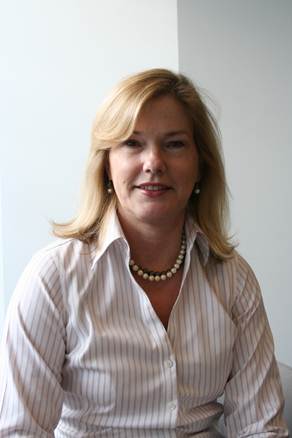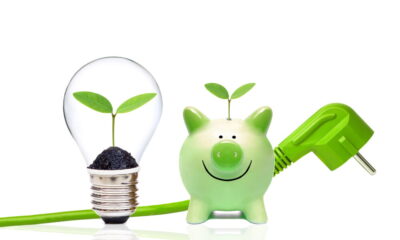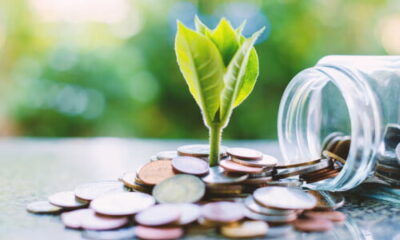

Features
A multi-asset fund with a healthy, sustainability-centred balance
Camilla Ritchie, investment manager at Seven Investment Management, spoke to Alex Blackburne about their Sustainable Balance Fund – a fund that aims to achieve equilibrium between income and capital, with an underlying sustainability theme.
The investment sector often isn’t for the faint-hearted. Certainly, given the current volatility of stock markets globally, making a commitment to a fund can be a potentially disastrous risk.
Camilla Ritchie, investment manager at Seven Investment Management, spoke to Alex Blackburne about their Sustainable Balance Fund – a fund that aims to achieve equilibrium between income and capital, with an underlying sustainability theme.
The investment sector often isn’t for the faint-hearted. Certainly, given the current volatility of stock markets globally, making a commitment to a fund can be a potentially disastrous risk.
The majority of the over 90-strong ethical funds in the UK are equities, meaning they invest in stocks and shares. This makes them prone to sometimes drastic instability, but the ultimate rewards can be very lucrative.
What happens, though, if you are swayed by Blue & Green Tomorrow’s cutting edge features about why you should invest ethically, but you’re not willing to enter the potential perils of the ethical equity market?
Well, there is at least one fund that could fit your needs.
The Seven Investment Management (7IM) Sustainable Balance Fund provides individuals with, as its name suggests, a balance.
Instead of investing in stocks and shares, the fund is multi-asset, meaning it distributes its investments around other assets, such as cash and bonds.
By offering a balanced risk profile, 7IM is significantly reducing the hazard involved, thus appealing to perhaps more cautious investors.
Camilla Ritchie, investment manager at 7IM, highlights the fund’s key background.
“It’s a sustainable fund, but it has ethical exclusions”, she says. “But I would say it’s more of a positively focused sustainable fund rather than a negatively focused ethical fund.
“It used to be called the Ethical Fund, but the idea behind calling it the Sustainable Balance Fund was that we wanted to emphasise the fact that it’s sustainable more than ethical, but also, we wanted to emphasise the fact that it had a balanced risk profile”.
Set up at the beginning of 2007, the fund is now worth around £28m. Despite the obvious investment limitations because of the ethical and sustainable criteria in place, admirably, its performance has been in line with unconstrained funds that have similar risk profiles.
7IM uses a Swiss company called Sarasin & Partners, a London-based investment manager that has a substantial sustainable research resource in Switzerland, which it uses to screen potential companies to invest in.
“[Sarasin] runs a matrix comparing the environmental and social aspects of each of the companies that it sees, to decide whether they are sustainable or not”, says Ritchie.
“The research facility out in Switzerland not only looks at companies – but also at countries, from the point of view of deciding whether their bonds are sustainable or not”.
The cooperation with Sarasin & Partners, Ritchie claims, is one of the major reasons as to why people should consider the 7IM Sustainable Balance Fund. Having the expertise of two companies of such esteem certainly gives the fund a leg up in terms of attracting investors.
Sarasin & Partners assesses various sectors in order to select companies to invest in, looking at social and environmental aspects of each. After matching the company to specific criteria, the information is entered into a matrix to determine whether an investment opportunity is available.
“In some sectors, you wouldn’t find any companies that are suitable, and that would really be to do with the sustainability of the sector as a whole”, explains Ritchie.
“Sectors like gold mining are unsustainable, and so you’re not going to find any gold company which is going to pass any of the criteria, particularly social, as I’d imagine some of them are in places where work practices are not socially acceptable – so that sector probably would be excluded at the outset.
“But there are other sectors that are generally sustainable and companies within then that have generally good social and environmental practices.
“After analysis using the matrix system, this should throw up which of those companies are the best of breed in their sector in sustainability terms”.
As Blue & Green Tomorrow continues to show, there are lots of options to choose from if an individual wishes to invest their money in an ethical fashion.
Whatever your morals or ethics, there is a fund for you. But why should people consider doing this?
“I don’t want to proselytise or dictate what people should do, but I genuinely feel that people ought to consider the environment and how much of the world’s resources we’re using”, Ritchie stated.
“If we are able to invest in companies that have a lower carbon footprint than others, then I think that that is the better thing to do.
“From an environmental point of view, it’s preferable to invest in stocks that have a lower carbon footprint, and also it’s preferable to invest in stocks where the companies are behaving in a better way towards their workers, so the social environment is better”.
The most important thing is not to get overawed by investments. It can be a confusing, and it can be tedious, but when it comes down to it, if your money is invested in sustainable places, the aftereffects really are world-changing.
Why not start a trend by choosing picking an ethical fund that mirrors your beliefs. For the more wary folk, the 7IM Sustainable Balance Fund might just be perfect.
“It’s very difficult to see where things are going at the moment, and it would be sensible to have a cautious view at this stage, because we just don’t know how the financial crisis and the Eurozone are going to play out”, Ritchie says, looking ahead.
“In some ways, markets are very binary at the moment – you either think it’s going to work out, in which case the stock markets will be fine, or you don’t think it’s going to work out, and if that’s the case, there is nobody who really knows how that might affect markets, or whether they might completely unravel.
“If you are looking to take a slightly more cautious view, then maybe a more balanced risk profile is the best solution”.
If you’re interested in the 7IM Sustainable Balance Fund, get in touch with them through their website.
Or if you’re interested in ethical investing more generally, ask your financial adviser or fill in our form if you don’t have one, and we’ll connect you to a specialist ethical one.


 Environment12 months ago
Environment12 months agoAre Polymer Banknotes: an Eco-Friendly Trend or a Groundswell?

 Features11 months ago
Features11 months agoEco-Friendly Cryptocurrencies: Sustainable Investment Choices

 Energy11 months ago
Energy11 months agoThe Growing Role of Solar Panels in Ireland’s Energy Future

 Energy12 months ago
Energy12 months agoHow Renewable Energy Can Help Combat Climate Change, According to Indra Energy


























